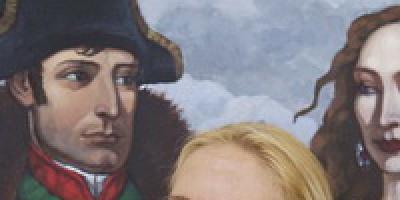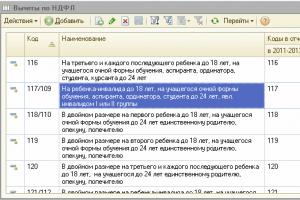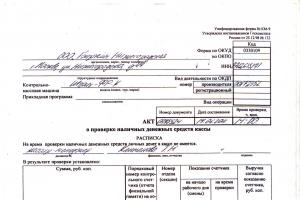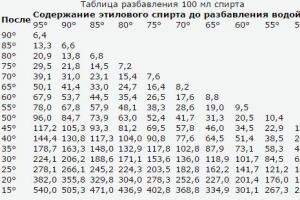In January 1973, Dmitry Simis finally left Moscow and headed to the United States via Vienna.
Once in the New World, he set himself a very ambitious goal - not only to integrate into American society, but also to become one of the first ranks of leading experts on the Soviet Union. Considering how many prominent Sovietologists cultivated this fertile soil during the Cold War, the goal was, to put it mildly, difficult to achieve. Nevertheless, over time it was achieved.
This was helped not only by the natural abilities and determination of Simis, who managed to quickly adapt to the new environment and successfully retrain from a Soviet Americanist to an American Sovietologist, but also by the correctly chosen position from which he analyzed the situation in the USSR. Unlike many Sovietologists in the United States (especially from among former Soviet citizens), who fed on banal anti-Soviet propaganda, Dmitry Simis tried to understand the meaning and direction of the evolution of the Soviet regime and, on this basis, predict the future of relations between the two superpowers.
Of course, he was helped by connections established with influential circles in the Republican Party. Soon after arriving in the USA, he established contact with Richard Pearl, at that time an assistant to Senator Henry M. Jackson (one of the authors of the famous “Jackson-Vanik Amendment”, which blocked economic relations between the USSR and the USA in 1974). R. Pearl was considered a rising star on Washington Olympus. Very soon, however, Simis and Pearl parted ways. From the very beginning, Simis was oriented toward moderate Republicans who showed a willingness to dialogue and cooperate with the Soviet Union, while Pearl belonged to the militant right wing of the Republican Party, which called on the Washington administration to take a forceful approach in relations with the USSR.
Simis developed a good relationship with Brent Scowcroft, who would become national security adviser to Presidents Gerald Ford and George H. W. Bush, and with James Schlesinger, who at one time headed the CIA and the US Department of Defense. With the support of his influential friends, D. Simis headed the Center for Soviet and European Studies at the Carnegie Endowment, which he directed for more than ten years.
Back in the mid-80s, he met former US President Richard Nixon and soon became one of his closest collaborators. Dmitry Simis accompanied Nixon on his last visits to Russia. Shortly before the death of the former Republican president in 1994, a Research Center of the same name was created on the basis of the Nixon Foundation, the director of which was Dmitry Simes, a leading American expert on the political problems of modern Russia.”
Source: Cherkasov P.P. . Portrait against the background of the era. // The whole world. M.: 2004 (ISBN: 5-7777-0279-1), pp. 377-381.
The figure of Dmitry Simes is interesting not only as the personification of an extraordinary emigrant from the Soviet Union, who almost instantly made a dizzying career, by US standards, becoming a foreign policy adviser to President Nixon. He managed to maintain surprisingly good relations with the political elite in his former homeland and at the same time zealously defend the interests of his newly acquired homeland. This apparent paradox can probably explain the exceptional influence of Dmitry Simes in both Moscow and Washington.– Mr. Simes, what is the history of the creation of your center? How do you understand its mission?
– Our center was created on January 20, 1994 by Richard Nixon, 25 years after his presidential inauguration. At that time, there were many different brain trusts in Washington: liberal, conservative, neoconservative. But there was no place where foreign policy realists felt at home. And Nixon decided to create it. Unfortunately, he died shortly after the creation of the center was announced. We, as they say, were guided by Nixon’s precepts, although we followed our own path.
The Nixon Center is a nonpartisan, or bipartisan, organization. Of course, we have our own political face. What I would call a "centre-right organization", moderate in its political orientation, but very prone to taking unusual positions and raising issues that some may find quite distasteful.
When we talked to Nixon about creating the center, he kept repeating: “You have to show me two things. First, you must show me where the specific niche for this center is. And second, you must prove to me why others cannot do the same thing, just as well or even better.” Therefore, we are not afraid to be provocateurs. Provocateurs, not in a negative sense, provoking someone to do something, but taking positions that may seem unexpected to someone, going too far.
It seemed to us that there were too many people in Washington who joined brain trusts not because they wanted to produce serious and new ideas, but because either their presence in the administration was over or because they hoped to be in the next administration. Such people, to put it mildly, can be slightly biased. Their position on almost every issue can be predicted before they even begin to study any issue. They simply look to see where the underlying current of thought is in their party or current, and that becomes their starting point.
We are different from other non-governmental organizations in America because we have consciously decided that we will not deal with the internal political situation in other countries. We want to conduct a foreign policy dialogue, for example, with the Russian establishment - with the way it is, and not the way we would like to see it. Our discussions with Russian colleagues are informal and informal. We do not want to replace the foreign ministries of our countries. At the same time, we want those people with whom we communicate to have access to the relevant figures in the government.
We have a small but highly respected staff of leading experts who lead our programs. But we would not be so effective if we did not have our “older comrades”. By “senior comrades” I mean those people who do not work at the center, but very actively cooperate with us and head our board of directors and advisory council. It would be difficult for us to conduct an effective dialogue with Russia if we did not organize lunches approximately once a year, and sometimes more often, between President Putin and the honorary chairman of our center, Henry Kissinger. It would be more difficult for us to work with Congress if we did not have Senator Pat Roberts, Chairman of the Senate Intelligence Committee, on our board of directors and the center's executive committee. We have quite a lot of such people on our board of directors and executive board. They are, if you like, transmission belts between us and the highest authorities.
– Who exactly do you communicate with in Moscow?
– When the Russian delegation recently came here to Washington, it met with Assistant Secretary of National Security Steve Headley, the Principal Deputy Secretary of Defense for International Affairs, and many senior representatives of the State Department and the White House. When we come to Moscow, we traditionally meet with the Minister of Foreign Affairs, with the Secretary of the Security Council, with Shuvalov, with Dmitry Medvedev, and before him with Voloshin... With people at this level. Two of my colleagues were in Moscow in the fall and, as part of a group, met with President Putin.
When we work with Russian colleagues, we do not have any one strategic partner. For every issue, we find an organization that makes sense for us as a partner. Our last trip to Moscow was coordinated by the Effective Policy Foundation, headed by Gleb Pavlovsky. But we have other partners in Russia, just like Gleb Pavlovsky in the USA.
We are often reproached in Washington for taking a pro-Russian position. Mr. Brzezinski especially often reproaches us and is very offended by us. We are, of course, very worried that we do not meet his very high expectations. As they say, life is hard, and we are ready to come to terms with this sad fate. We proceed from the fact that in a dialogue on national security issues, Russia and America have their own interests, and they must be clearly formulated. Where possible, common ground and opportunities for collaboration should be sought. Where it is impossible, try to find a formula so that disagreements do not become cosmic and do not prevent us from cooperating where there is likely to be a coincidence of mutual interests.
– Can you explain why the US government still needs organizations like yours?
– When we created our center, we did not consult with the US government. And for us, the government’s opinion on this matter was not central. In order to understand what is happening in American politics, you need to be able to dialogue with the authorities. We are conducting such a dialogue. But we proceed from the fact that it is very difficult to influence political decisions from the outside. I have lived in Washington for over 30 years and have interacted with very important and significant government figures. And it is very difficult for me to imagine how one can influence a certain decision by talking with someone in some administration. We are trying to have a real impact through our participation in political dialogue.
What is virtually absent in Moscow is the interconnection of communicating vessels between organizations like ours, the media and Congress. If Mr. Gvozdev (editor of The National Interest magazine) first appears on television, then he is invited to congressional hearings, then the question arises not about why the administration needs him, but why the administration should take him into account. If he is then invited to a meeting with the vice president, it is not necessarily because the vice president needs him, but because he represents a figure and a bearer of a point of view that is important to the vice president, to the White House.
We are in opposition on many issues and do not at all expect that the authorities will turn to us for advice. We are trying to make our opinions matter politically so that they cannot be ignored. With the help of the media, we have the opportunity to determine the format of debates and their priorities. For example, we may show increased interest in what is happening in Iraq, but place much less emphasis on what is happening in North Korea.
Many years ago I spoke with Don Kendall (the legendary head of PepsiCo. - Ed.). I met him at Johns Hopkins University, where I headed a small program on Russia and Eastern Europe. Don Kendall supported us financially. Once a month he invited me to lunch at his luxurious headquarters near New York. Don was in a good mood and constantly poured me Stolichnaya. And so he says to me: “I saw you on TV recently. You spoke about the policy of the USSR. But when was the last time you talked to Brezhnev?” I answered him: “You see, Don, I never talked to him at all.” This was not entirely true: I once met Brezhnev at an event in Moscow before I emigrated, but we didn’t really get a chance to talk. “But I,” Don continued, “returned from Moscow two days ago and talked with Leonid for three hours. And he told me this and that.” But then I asked Don Kendall: when did he talk to ordinary Russians, when was the last time he walked into a Soviet store and asked if there was sausage, did he talk to regional committee secretaries who would tell them to what extent plans were being implemented or why they are not fulfilled. Of course, at the level at which Kendall was operating, these issues were from a completely different world. So we are trying to bring a new dimension to the discussions that is often missing in political discussions. This is our mission.
– What kind of hierarchy exists in your center?
– Our program directors are basically equal. They are not necessarily equal to each other in terms of prestige, age and, accordingly, remuneration. We have 18 permanent employees. In addition, junior researchers work part-time. Every program manager has a group of people they rely on. But everyone has a fair degree of autonomy.
We wanted to be a small organization from the very beginning. The less, the more money you have for everything else. I spent the first years of my professional life at the Institute of World Politics and International Relations, working for a man named Yevgeny Maksimovich Primakov. We worked together with Igor Sergeevich Ivanov for a man whose name was Nikolai Nikolaevich Inozemtsev. I remember, even then, our constant conversations were about the fact that the institute had 750 employees; if 500 of them were fired, he would only become better, and the rest would receive a better salary accordingly. Moreover, if we became a large organization, it would be difficult for us to take positions that I have called provocative. Finally, when we hire employees, we assume that these are people who can perform at the highest level. For our program managers, the opportunity to meet with the leaders of the countries they work on is the norm. If our energy program manager is in Azerbaijan, then she meets with Aliyev. When she visits Kazakhstan, she flies on Mr. Nazarbayev's plane. There are few such people on the market.
– Does your center try to present a consolidated point of view or is it just a platform for experts?
– Not a single serious organization like ours will force its employees to utter any words. This is wrong and impossible with people on a certain level. But I find it hard to imagine anyone at the Heritage Foundation who is a liberal democrat. I have a hard time imagining anyone at the Carnegie Endowment who would be a Republican isolationist. It is quite obvious that the larger the organization, the more eclectic it is. Each organization has its own personality. There are, of course, different people at the Nixon Center, with different approaches. When one of our employees is invited to speak at Congress, no one comes to the center’s management asking whether this can be done. No one submits their materials to us for preliminary censorship. When someone decides to write an article, we do not and cannot have any prior approval or editing. As an organization, we very rarely take a stand.
But, on the other hand, I would be lying if I said that we do not have our own face. We have it. You won't find people at the Nixon Center who believe, for example, that the United States is the center of world evil. If they ended up here, they would be uncomfortable in the long run. You won't find people here who will say that the main mission of the United States is to spread goodness in the world and that everyone else should obey America. This is a center focused on political realism. Well, foreign policy realism speaks with different accents, in several dialects. And they're on display at the Nixon Center.
– How different is the work of Russian and American brain trusts?
– We work differently. In Russia, brain trusts work closely with the authorities. Although we strive to work closely with any administration, we want there to be, if not a stone wall, then a high fence between us and that administration. This fence may have a couple of wickets and even one big gate, but we want to play by very clear rules. We are very careful about any government funding. I don’t believe that the one who pays will not want to someday, even subconsciously, order the music, and the whole point of our existence is that we write the music ourselves.
When we publish articles in newspapers, it is important for us to realize that they will have real resonance. TV program executives are very oriented towards analytical articles in large newspapers. I talked to some people who determine policy on Russian television, but there the decision-making mechanism is somewhat different and the focus on newspaper articles, frankly speaking, is significantly less. Here there is a bipartisan Congress, where the minority has very large and real power, where in each commission there is an apparatus of the majority and an apparatus of the minority. When hearings are being prepared, both Republicans and Democrats call witnesses separately. In Russia, it seems to me, the Duma today plays a completely different role than the Congress in the United States. These are the very mechanisms that allow us to act differently. The mechanisms of influence in our countries are not the same.
The conversation took place within the framework of the International Visitor Leadership Program, organized by the US Embassy in Russia.
Prepared by Ruslan KHESTANOV
From the dossier
Dmitry SIMES was born in Moscow. Graduated from the Faculty of History
Dmitry Symes(eng. Dimitri K. Simes, at birth Dmitry Konstantinovich Simis; October 29, 1947, Moscow, USSR) - American political scientist of Soviet origin. President of the Center for National Interests since 1994.
The son of lawyer and human rights activist Konstantin Simis and lawyer Dina Kaminskaya.
Biography
After graduating from high school, he worked for a year as a scientific and technical employee at the State Historical Museum, then entered the full-time department of the Faculty of History of Moscow State University, from where, from the second year, he was forced to switch to correspondence after he entered into a dangerous polemic with a teacher of the history of the CPSU regarding the assessment of Lenin's works. works At the same time, Dmitry Simis got a job at the Fundamental Library of Social Sciences of the USSR Academy of Sciences (now INION RAS).
Having continued his correspondence studies at the Faculty of History, becoming interested in anthropology, in 1966 he entered the full-time department of the Faculty of Biology and Soil Sciences of Moscow State University. In January 1967, Simis was expelled from the full-time department of the Faculty of Biology and Soil Sciences for “anti-Soviet statements” at a youth debate dedicated to condemning the US war in Vietnam.
In 1967-1973, he was a researcher at the Institute of World Economy and International Relations (IMEMO), and led the Komsomol organization.
In 1973 he emigrated to the USA. He directed the Center for Russian and Eurasian Programs at the Carnegie Endowment, and was a professor at Johns Hopkins University, Columbia University and the University of California at Berkeley.
He was an informal adviser to former US President Richard Nixon on foreign policy issues.
Since 1994 - President of the Nixon Center (now the Center for the National Interest). He is the publisher of The National Interest magazine.
Takes part as an expert in Russian political television programs and print publications.
Grandfather and granddaughter, film and theater artist, classic of the Soviet school and a prominent representative of modern art. The paintings of these two authors are so different and so similar.
They are united by an unbreakable bond of family and talent.
Dream of the Deity

Anastasia Rurikova was born in Moscow. In 1974-1979 Studied at the Krasnopresnensky School of Arts. Of course, her grandfather, P. I. Pashkevich, had a great influence on Anastasia’s work. In 1987, she graduated from the Moscow Secondary Art School at the Moscow State Art Institute. V. I. Surikova. In 1994 she graduated from the art department of VGIK, department “Artist - film director”. Having married a prominent American political scientist, Dmitry Simes, Anastasia has been living and working as a theater artist in the United States, in Washington, DC since 1993, where she took part in more than 20 theatrical productions and was repeatedly nominated for the prestigious theater award. Ellen Hayes.
“I was flying with my future husband, famous political scientist Dmitry Simes,” she recalls, “on the plane of ex-President Richard Nixon.
- What do you do? - he asked
- Artist! - I answered proudly.
- Horrible! - the ex-president quite sincerely did not believe it - Why not a lawyer or at least an economist?!
I smiled because I knew that this profession was the best in the world."
Present
“As an artist, I sometimes find it difficult to explain my paintings. Since early childhood, I have followed the advice of my grandfather, who told me: “If you want to communicate something important, it is better to draw it than to try to formulate it in words.” Words will be lost in any case." If I were asked to describe my work in one phrase, I would say in the words of Gabriel García Márquez from his work "One Hundred Years of Solitude" - "the world was so new that for many things there were no names and you had to point to finger them." This, I think, reflects the way I experience the world, that it is always new, always unexpected. You don’t always know that you are just trying to find a name for this, these nuances, these emotions, these experiences."
Life. White is my night
Life. Blue is my day
Life. Red chicken
Apparently, this is why the artist Anastasia Rurikova-Symes gives her paintings such unusual names that intrigue, force you to look more closely at them, look for hidden symbols and semantic elements. The world of a woman is especially close and understandable to her, refined, complex, contradictory, full of nuances and emotions.
Secrets of day and night
The mystery of the pomegranate
Mystery of the night
Coronation
Napoleon in Love
After the fact
Night
Night of the Red Horse
Struggle. Man is a bird and man is a bull
Tales of power. The Rower of one
Tales of power. Red Bull and White Bull
Tales of power. Challenge of a Yellow Bull
Tales of power. Duel
Lunatics
Territory Lesson
Theorem
The escape
Caught in the mirror
Levitation on Monday
Miracle on Tuesday
Birds of Passion
Judgment Day
Prayer for a sinful Soul
Land of Forgiveness
Porcelain passions
"Pyotr Isidorovich Pashkevich (1918-1996), Soviet film artist. People's Artist of the RSFSR. Laureate of the Stalin Prize of the second degree.
Pyotr Pashkevich was a man of impeccable style and taste. There are fewer and fewer people left about whom we can unconditionally say: an intelligent person. Even if he is talented, educated, has a good family name, and claims to have this characteristic, “intelligence” is still a rare personality trait. Pyotr Isidorovich is the embodiment of intelligence, which is always and above all in actions and behavior.
He never raised his voice or was rude, he never talked about himself and the children, he never said stilted pretentious words and did not speak at meetings. He never slandered, although he joked well and subtly. He created posters, built scenery, painted and was a harmonious person. But any writers, painters, musicians are forgotten. For them to live, they must be remembered. Pyotr Isidorovich was twice happy: he has children who love and remember him. They understand the significance of the work of their father Pyotr Pashkevich for all of us and those behind us."
Pashkevich, Pyotr Isidorovich + Pashkevich, Tamara Petrovna:
Pashkevich, Andrei Petrovich - artist, creator of "political ecology" - a picturesque political chronicle of the modern history of Russia. Wife: Gret Van Halst, also an artist
Rurikova, Natalia Petrovna - founder and director of the Moscow art gallery "Nashchokin's House". Husband - Rurikov, Dmitry Borisovich, diplomat.
Rurikova-Symes, Anastasia Dmitrievna - since 1993 she has lived and worked as a theater artist in the USA, where she took part in more than 20 theatrical productions.
Rurikov-Rado, Kirill Dmitrievich - lawyer, artist.
Artist P.I. Pashkevich
Music: B.Malgo - Du Bist Mein Zufluchtsort
The famous American political scientist of Russian origin, Dmitry Simes, is becoming increasingly popular in Solovyov’s programs and programs with a clear focus on discussing relations between the United States and Putin. Therefore, his biography, nationality and personal life are of particular interest to fans of political reviews.
Childhood, parents, studies
The famous theorist of international relations was born in 1947 in Moscow. The celebrity's parents were lawyer Konstantin Simis and lawyer Dina Kaminskaya, a capital Jewish family who for many years tried to resist anti-Semitic sentiments among the Soviet intelligentsia. This position of mom and dad played a crucial role in the development of the biography and personal life of Dmitry Simes, whose nationality is beyond doubt.
After graduating from high school, the guy got a job as a senior scientific and technical employee at the Historical Museum. A year of practice allowed the gifted young man to pass difficult exams at Moscow State University at the Faculty of History, where he was considered the most capable student for a long time.
Photo: Dmitry Simes
Everything changed after 2 years - the restless student, who every time entered into polemics with teachers on one or another historical event and zealously criticized the shortcomings of the Soviet government, had to switch to the correspondence department.
Interesting: Boris Titov: biography, nationality
At the same time, the young man successfully passed the entrance exams to the capital’s biology and soil university. This was facilitated by his passion for anthropology and the desire to understand the truth of statements about the dependence of a person’s mental abilities on his nationality.
In 1967, a student found himself locked out of the famous university because of a dispute at a regular student meeting. Then the young political scientist categorically refused to publicly confirm the expediency of the multimillion-dollar participation of the USSR in the American-Vietnamese conflict. According to a young specialist in the field of international relations, all funding for intervention in the international situation could be redirected to improving the social situation in the homeland.
Thanks to the extensive connections of his parents, the disgraced Dmitry Simes, whose personal life, biography and nationality always played an important role in his political position, managed to obtain the position of junior researcher at IMEMO. By this time, the guy had firmly decided to immigrate to the United States, so he moderated his own activity regarding the restoration of historical justice and turned his attention to social work.
The young man's unique adaptability and his deep understanding of the principles of Soviet ideology helped Dmitry avoid further accusations of anti-Soviet propaganda. Moreover, in a short time he achieved not only a promotion, but also praise from leading party officials for his achievements as deputy Komsomol organizer of the institute.
Emigration and career in the USA
Realizing that it would not be possible to fully devote himself to scientific activity in his chosen field in the conditions of Soviet reality and the existing anti-Semitic sentiments in the state, Dmitry Simis decides to move to America. This step came as a big surprise to all his superior trustees and completely changed the biography and personal life of the young scientist, born into a family with an inconvenient nationality.
American political scientist Dmitry Simes
Shortly before the official registration of the right to travel abroad, Dmitry found himself among dissidents who staged a protest at the Central Telegraph in Moscow. For this reason, he was arrested and spent three months in a pre-trial detention cell. The intervention of an American senator and the French prime minister, who turned to Comrade Kosygin himself for help, helped him to free himself and receive an expedited emigration permit. Thus, Simis was given the opportunity to leave the USSR as a Jew, without the right to return to the vastness of the Soviet state.
For some time, Dmitry had to live in Vienna while the issue of his status in his new homeland was being resolved. Having received citizenship in 1973, Dmitry very quickly adapted to the new conditions for him, trying not to limit himself to banal anti-Soviet propaganda. An intelligent and purposeful young man chose the only right path against the backdrop of numerous defectors from Russia - he was able to force American experts on this issue to talk more about the evolution of Soviet society. Such an analysis was completely unusual and became advantageously reasonable in the field of predicting relations between two powerful superpowers.
Influential Patrons
Very quickly, the newly minted citizen of the United States of America, who received documents in the name of Dmitry Simes after moving, acquired the necessary contacts in the Republican Party of the New World.
Dmitry Simes at a meeting with Lavrov
So among his patrons were at one time:
aide to Senator Richard Perle;
National Security Advisor to the Presidents Brent Scrockforth;
Head of the CIA and US Department of Defense James Schlesinger.
Evil tongues claim that it was influential patrons who helped the Russian emigrant to head the Center for Soviet and European Studies at the Carnegie Endowment. In this position, Dmitry Simes served his new homeland for more than ten years.
Largely thanks to many years of friendship with President Nixon, the Institute of National Research was created specifically to implement the ambitious projects of the successful emigrant, dealing exclusively with the problem of relations between America and the modern Russian state, taking into account recent events.
Interesting: Simon Mardanshin: biography, nationality
Personal life of a famous political scientist
It was not possible to find any specific details about the family and its role in the biography of Dmitry Simes. It is only known that the celebrity’s wife was Anastasia Reshetnikova, the daughter of the famous artist Pashkevich. The woman is considered one of the most popular theater and film artists in America and Europe.
Dmitry Simes in the White House
They met their future husband on one of his visits to the Russian capital in 1994. Then an American political scientist of Russian origin and a Jew by nationality accompanied President Nixon to the next negotiations with the head of the newly formed state after the collapse of the Union. And the young graduate of VGIK and the Surikov Art Institute flew with influential people on the same plane to the first personal foreign exhibition in her life.
Dmitry Simes (Dimitri K. Simes), born Dmitry Konstantinovich Simis. Born on October 29, 1947 in Moscow. American political scientist, historian, president of the Center for National Interest (since 1994), publisher of The National Interest magazine.
Dmitry Simis, who later became known as Dmitry Simes, was born on October 29, 1947 in Moscow into a Jewish family.
Father - Konstantin Simis, lawyer and human rights activist.
Mother - Dina Isaakovna Kaminskaya (1919-2006), lawyer and human rights activist, known for her participation in the trials of Soviet dissidents. Dina Kaminskaya’s speeches “Justice or Retribution?”, “Trial of Four”, “Noon”, “Tashkent Trial” were included in the collection and distributed in samizdat. Since 1971, Kaminskaya was no longer allowed to participate in political processes.
Dmitry's parents were forced to emigrate to the United States in 1977 under threat of arrest.
Dmitry Simes graduated from high school in Moscow.
Then he entered the full-time department of the Faculty of History of Moscow State University, from where, from the second year, he was forced to switch to a correspondence course - after he entered into a dangerous polemic with a teacher of the history of the CPSU regarding the assessment of Lenin’s works. At the same time, Dmitry Simis got a job at the Fundamental Library of Social Sciences of the USSR Academy of Sciences (now INION RAS).
Continuing his correspondence studies at the Faculty of History, he became interested in anthropology and in 1966 entered the full-time department of the Faculty of Biology and Soil Sciences of Moscow State University. In January 1967, Simis was expelled from the full-time department of the Faculty of Biology and Soil Sciences for “anti-Soviet statements” at a youth debate dedicated to condemning the US war in Vietnam.
In 1967-1973 - scientific and technical, and then junior researcher at the Institute of World Economy and International Relations (IMEMO), was deputy secretary of the Komsomol committee and received an award for the best project among young scientists.
In 1973 he emigrated from the USSR. Shortly before the official registration of the right to travel abroad, Dmitry found himself among dissidents who staged a protest at the Central Telegraph in Moscow. For this reason, he was arrested and spent three months in a pre-trial detention cell. The intervention of an American senator and the French prime minister, who turned to Soviet Premier Kosygin for help, helped to free him and receive an accelerated emigration permit. As a result, he was given the opportunity to leave the USSR as a Jew, without the right of return.
For some time Dmitry had to live in Vienna. Then he ended up in the USA.
He directed the Center for Russian and Eurasian Programs at the Carnegie Endowment, and was a professor at Johns Hopkins University, Columbia University and the University of California at Berkeley.
He was an informal adviser to former US President Richard Nixon on foreign policy issues.
Since 1994 - President of the Nixon Center (now the Center for the National Interest).
He is the publisher of The National Interest magazine.
He often takes part as an expert in Russian political television programs and print publications.

In 2018, he became one of the hosts (together with) the Channel One talk show “Big Game”. The program analyzes the events of the current day and presents the views of both Russians and Americans on them. The “Great Game” program was announced as an attempt to understand whether Russia and the United States could come to an agreement, or whether mental and cultural contradictions make this almost impossible.
The Russian point of view in the program is represented by the Chairman of the State Duma Committee on Education and Science, Chairman of the Board of the Russkiy Mir Foundation Vyacheslav Nikonov.
The American point of view is explained by Dmitry Simes. He said: “The Big Game has big stakes. One of them is how to maintain peace without compromising either American or Russian national interests. It's not easy, but it's possible. We will speak only on our own behalf, but strive to always be informed and objective.”








